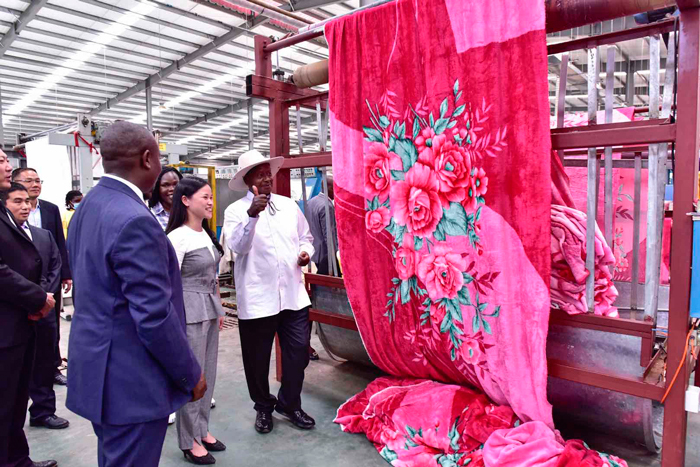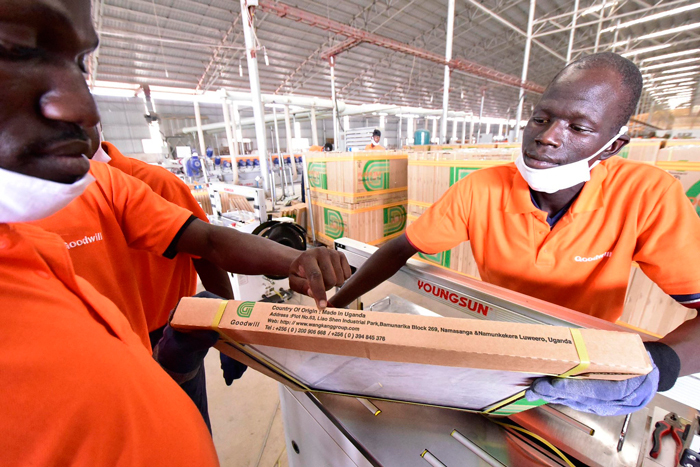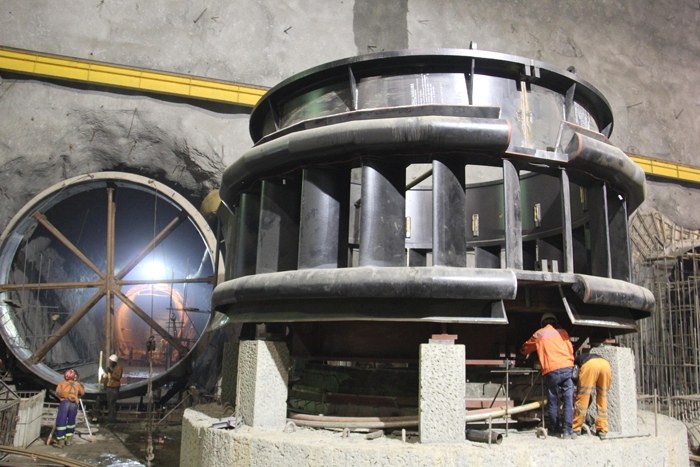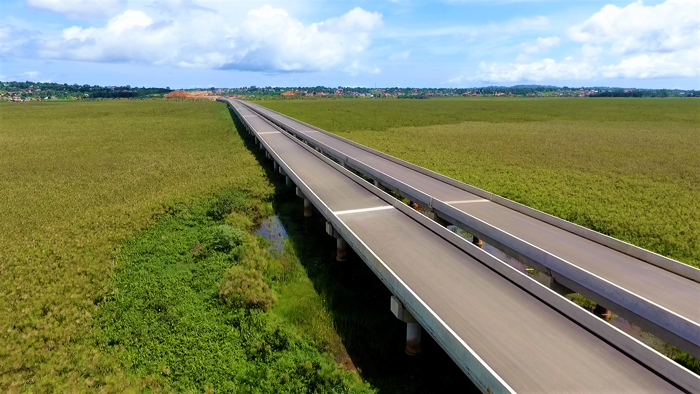No one can deny fruits of China-Uganda co-operation
Facts speak louder than words and fair-minded people can tell right from wrong. No one could deny the remarkable achievements made in China-Uganda and China-Africa cooperation.
Zheng Zhuqiang, Chinese ambassador to Uganda. courtsey pictures
By Zheng Zhuqiang
Recently, Mr. Tibor Nagy, the Assistant Secretary of State for African Affairs of the United States, paid a visit to Uganda.
During the visit, Nagy held a press conference on March 9, in which he made some negative remarks on China-Africa relations, such as "China increases African countries' debt burden", "China does not employ enough local people" etc., which I found totally groundless. Nagy also felt greatly "annoyed" about the reality that China-Africa cooperation are welcomed by African countries and their people.
Throughout these years, each and every time when some senior American officials visit Africa, besides selling the US value and its strategy, they always take China as a regular topic and make untrue allegations against China-Africa relations. At first, China also felt greatly annoyed and my colleagues in various embassies in other African countries would step forward to detoxify the false allegations of the US.

President Museveni visited a Chinese-owned factory in Mukono on March 9, 2019
However, as the US officials do it over and over again, we finally come to a conclusion that, the reason behind the attacks of the US is not that China does something wrong, but only because China is doing a good job. The New Africa Strategy of the US emphasises the principle of "America First", and the US regards Africa as its own sphere of influence and would not allow other countries such as China to step in. I can only say that, by doing so, they are measuring other people's corn by their own bushel.
Facts speak louder than words and fair-minded people can tell right from wrong. No one could deny the remarkable achievements made in China-Uganda and China-Africa cooperation.
China is the most important partner of Uganda in infrastructure. One of the signature projects in Uganda is the Kampala-Entebbe Expressway, a modern expressway which reduces the time spent driving between Kampala and Entebbe from more than two hours to just about 30 minutes. Since the expressway is the first road for many foreign visitors to see in Uganda, it greatly lifts the country's image in the world.

Tiles made by Chinese investors in Uganda
Perhaps not everyone is aware that Mandela National Stadium was built with a grant from the Chinese government in 1997. Ugandan people are sports-lovers, out of whom did come some legendary Olympians such as John Akii-Bua. Mandela National Stadium, used as the host ground of the Ugandan national football team (the Cranes), is a place fond of by all Ugandans. I believe Uganda deserves to have such a stadium.
Another major infrastructure project is the Karuma Hydro Power Plant (HPP). Over 8,000 Ugandans have been employed as the project is being built. Local employees account for 13% of managers, 50% of technical workers and 87% of general workers. By the end of the project, more than $260m will be paid for local procurement of diesel, cement, steel, wood and vehicles. Together with Isimba HPP, the two dams are expected to lower the electricity tariff to less than five US cent per kilowatt hour.
China also leads in foreign direct investment to Uganda. There are six industrial parks in Uganda invested by Chinese entrepreneurs, namely Shandong Industrial Park in Luzira, Tiantang Industrial Park in Mukono, Liaoshen Industrial Park in Kapeeka, Uganda-China (Guangdong) Free Zone of International Co-operation in Sukulu, Mbale Industrial Park and Kehong Agricultural Industrial Park in Luweero.
Chinese investment, ranking top the foreign direct investment source to Uganda, has made great contribution to the industrialisation of Uganda and created more than 80,000 local employment opportunities. Let me take Goodwill Tile Factory, located in Liaoshen Industrial Park in Kapeeka, as an example.
The factory employs about 2,000 Ugandans and rewrites the record that Uganda cannot make tiles by itself. All its products are proudly labeled "Made in Uganda". Since the production started, the price of tiles in Uganda has dropped by 25%. The company helps to save foreign exchange for Uganda, worth $35m in import substitution and fetch about $10m in exports annually.

Turbines of Karuma Hydro Power Plant
Uganda has also become one of the biggest beneficiaries of China's foreign training programmes. Since 2016, over 1,200 Ugandans have attended China-aided training courses and seminars in China. For the last few years, the Chinese government has sponsored over 250 Ugandan students to study in China for diplomas through Chinese government scholarships and other scholarship programmes.
The China-Aided Industrial Skills Training and Production Centre is under construction with a $30m grant and the centre, situated on a 15-acre plot at Namanve Industrial Park, will introduce modern manufacturing methods and practices into Uganda for youth skill development.
Although China is one of the important development partners of Uganda, the loans China provides to Uganda account for only a small portion of its debts. By the end of 2017, Uganda's total public debt stock amounted to $10.23b, out of which the external debt stood at $6.88b.
According to the statistics released by the Ministry of Finance of Uganda, China, with the loan stock to Uganda as much as $1.59b, only accounted for 15.5% and 23.1% of the total and external debt of Uganda, respectively. If one regards 15.5% as the root cause of "debt trap", how about the remaining 84.5%?
The benefits of China-Africa cooperation are abundantly clear. After decades of diligent nurturing, the sapling of China-Africa cooperation has grown into a towering tree that no force can topple. Going forward, we will fully implement the eight major initiatives announced at last year's FOCAC Beijing Summit and continuously deepen our Belt and Road Initiative cooperation. Seizing these two opportunities, we can build an even stronger China-Africa community with a shared future.
Problems in co-operation are not a problem. No co-operation is, in fact, the real problem. China and Africa are both experiencing fast development and each needs to update its knowledge and understanding of the other. China will face squarely and sincerely the new developments and new problems confronting our relations. We should properly handle any problem that may arise in a spirit of mutual respect and win-win co-operation.

Kampala-Entebbe Expressway
I am convinced that there will always be more opportunities than challenges and more solutions than difficulties. China has worked and will continue to work with African countries to take concrete measures to properly address problems in our economic co-operation and trade, and enable the African countries to gain more benefits from the cooperation.
As to the feeling of annoyance of some American officials, I want to say that China-Africa co-operation has always been open and inclusive. Africa's development requires more input from the international community. The exemplary effect of China-Africa co-operation can be leveraged to encourage more countries to give greater attention, weight and input to Africa.
When all of us combine our strength, we can contribute more to peace and development in Africa. China sincerely hopes that all countries do more for Africa's development, rather than judging others.
The writer is the Chinese Ambassador to Uganda